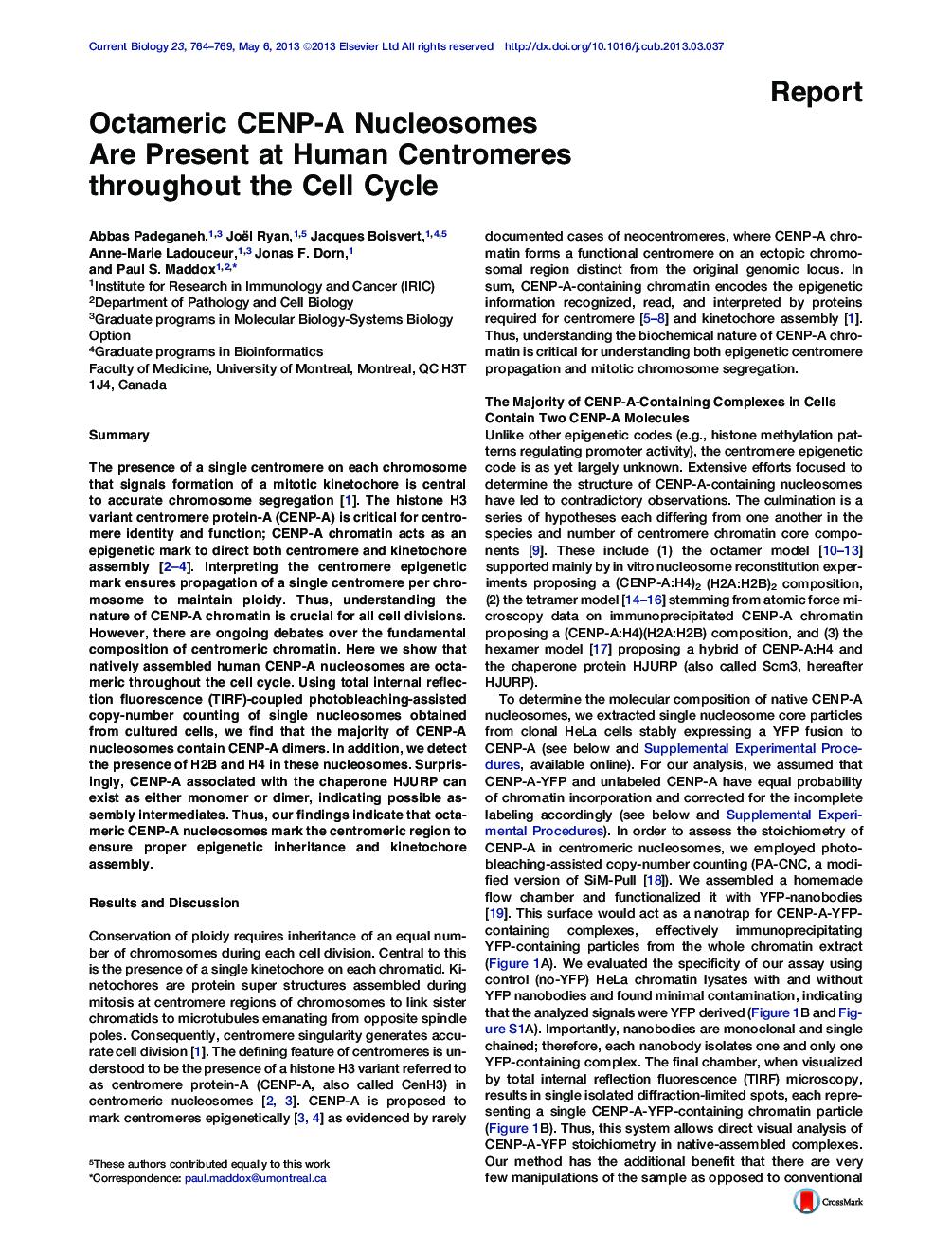| کد مقاله | کد نشریه | سال انتشار | مقاله انگلیسی | نسخه تمام متن |
|---|---|---|---|---|
| 2042767 | 1073280 | 2013 | 6 صفحه PDF | دانلود رایگان |

• CENP-A octameric nucleosomes epigenetically mark centromeres
• CENP-A associated with the chaperone HJURP can exist as either monomer or dimer
SummaryThe presence of a single centromere on each chromosome that signals formation of a mitotic kinetochore is central to accurate chromosome segregation [1]. The histone H3 variant centromere protein-A (CENP-A) is critical for centromere identity and function; CENP-A chromatin acts as an epigenetic mark to direct both centromere and kinetochore assembly [2, 3 and 4]. Interpreting the centromere epigenetic mark ensures propagation of a single centromere per chromosome to maintain ploidy. Thus, understanding the nature of CENP-A chromatin is crucial for all cell divisions. However, there are ongoing debates over the fundamental composition of centromeric chromatin. Here we show that natively assembled human CENP-A nucleosomes are octameric throughout the cell cycle. Using total internal reflection fluorescence (TIRF)-coupled photobleaching-assisted copy-number counting of single nucleosomes obtained from cultured cells, we find that the majority of CENP-A nucleosomes contain CENP-A dimers. In addition, we detect the presence of H2B and H4 in these nucleosomes. Surprisingly, CENP-A associated with the chaperone HJURP can exist as either monomer or dimer, indicating possible assembly intermediates. Thus, our findings indicate that octameric CENP-A nucleosomes mark the centromeric region to ensure proper epigenetic inheritance and kinetochore assembly.
Journal: - Volume 23, Issue 9, 6 May 2013, Pages 764–769